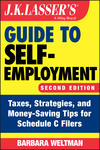February 4, 2014 8:30 am
25 Ways to Receive Tax-Free Income

Income that the tax law exempts is the best type to receive. This income becomes more valuable as your tax bracket increases. The following is a list of tax-free income that you may be entitled to. Be sure to note that eligibility for tax-free treatment in some cases hinges on the amount of your other income.
- Child support. Child support payments you receive from a spouse, former spouse, or the child’s other parent to support your child is not taxable.
- Coverdell ESAs. Distributions from Coverdell Education Savings Accounts to pay qualified education expenses are fully tax free.
- 529 plans. Distributions from 529 plans to pay tuition and fees for higher education are tax free.
- Capital gains and qualified dividends. There is no tax on this income if you are in the 10% or 15% tax bracket. This determination is made year by year; your income includes capital gains and qualified dividends.
- Disability payments. If you receive payments from a policy, they are tax free as long as you paid the premiums. If your employer paid the premiums for you as a tax-free fringe benefit, then you are taxable. Social Security disability payments may be tax free or partially taxable (see Social Security benefits below).
- Education paid by an employer. Up to $5,250 of employer-paid education costs is tax free, regardless of whether the courses are work related. If the courses are work related, then the benefit can be tax free in any amount.
- Employee discounts. If you receive a discount for buying your employer’s goods and services, your savings are not taxed as long as the discounts are within limits fixed by law.
- Free parking. If your employer covers the cost of parking for work, a certain amount each month ($250 in 2014) is tax free.
- Frequent flyer miles. The benefits you earn are not taxable as long as you aren’t able to convert the miles into cash.
- Gifts. Whatever cash or property you receive as a gift, it’s all tax free. However, “gifts” from employers usually are taxable; the gift label doesn’t help you.
- HSAs. Distributions from Health Savings Accounts to pay qualified medical expenses are tax free.
- Home sale gain. Up to $250,000 ($500,000 for joint filers) of gain on the sale of a principal residence is not taxed. You must have owned and used the home as your principal residence for at least 2 of the 5 years preceding the date of sale.
- Inheritances. When you inherit money, it is all tax free, regardless of amount. This includes inheritances from a person dying abroad.
- Insurance claims. If you receive payments for personal illness or injury from a health or auto policy, the payments are tax free.
- Interest on municipal bonds. All of the interest on muni bonds is tax free. However, the interest is taken into account for determining the taxable portion of Social Security benefits and “household income” for the shared responsibility payment if you don’t have minimum essential health coverage in 2014.
- Life insurance proceeds. If you receive benefits on the death of the insured, all of the funds are tax free. There is no dollar limit on this exclusion.
- Rebates. If you clip coupons or submit rebates for purchases you make, the value of the rebates are not taxable to you. For example, if you buy a new computer and receive a $50 rebate, the rebate is viewed by the IRS as an adjustment to the purchase price and not as taxable income.
- Reimbursements under an accountable plan. If your employer reimburses your travel and entertainment expenses under an accountable plan, the reimbursements are tax free.
- Roth IRAs and designated Roth accounts. The earnings on funds in these accounts become tax free as long as the accounts are open for at least 5 years and withdrawals are not taken before age 591/2 or for certain other specified events.
- Short-term rentals.If you rent out your home for 14 days or less during the year, the income you receive is not taxable. You don’t even have to report it.
- Small business stock. Gains on the sale of small business stock (stock issued by a C corporation that meets certain requirements) is fully tax free if the stock was issued after September 27, 2009, and before January 1, 2014, and held for more than 5 years.
- Social Security benefits. If your income (including tax-exempt interest and one-half of Social Security benefits) does not exceed $25,000 if you’re single, or $32,000 if you’re married and file jointly, then all of your benefits are tax free. If your income exceeds your threshold amount, then only 50% or 15% of benefits are tax free.
- Transit passes. Employer-paid monthly transit passes are tax free up to a set dollar limit ($130 in 2014, but this limit could be increased by Congress).
- Wages for a child. A child can earn up to his or her standard deduction amount tax free each year. The standard deduction amount for a single individual in 2014 is $6,200.
- Workers’ compensation. Benefits you receive for an on-the-job injury or illness are fully tax free.
Note: The ability to transfer up to $100,000 from an IRA to a public charity by those age 701/2 on a tax-free basis expired at the end of 2013. Congress may reinstate this break; we’ll bring you details if it happens.
advertisement
Featured Books



